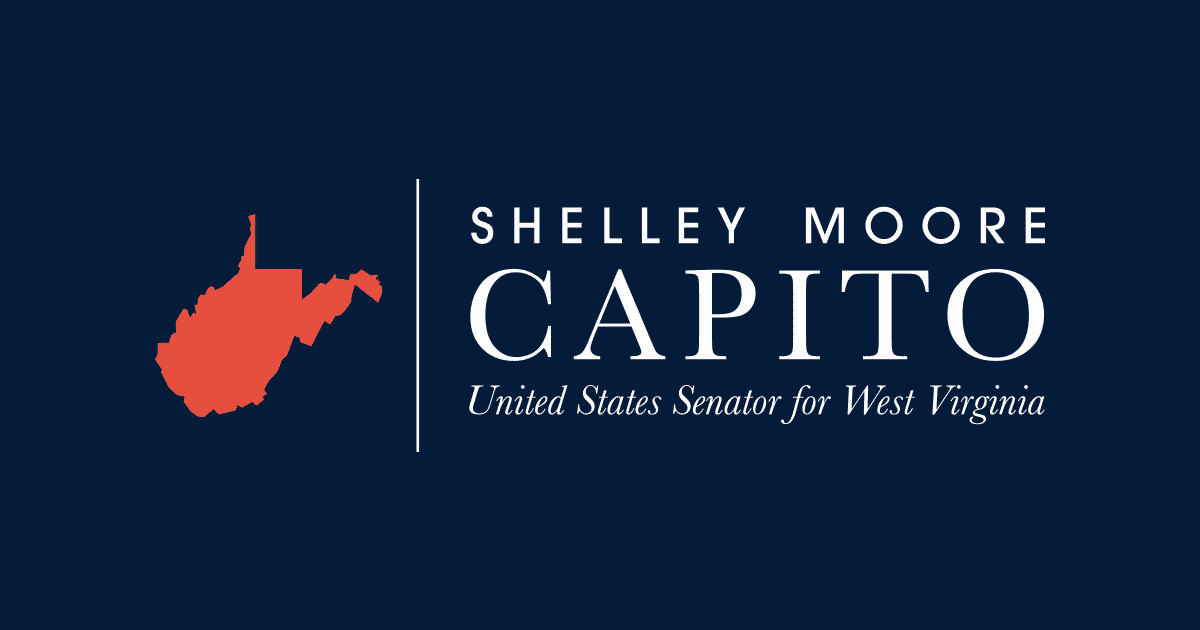Source: United States Senator for West Virginia Shelley Moore Capito
WASHINGTON, D.C. – U.S. Senators Shelley Moore Capito (R-W.Va.), Ranking Member of the Senate Environment and Public Works (EPW) Committee; Kevin Cramer (R-N.D.), Ranking Member of the Subcommittee on Transportation and Infrastructure; Cynthia Lummis (R-Wyo.), Ranking Member of the EPW Subcommittee on Fisheries, Water, and Wildlife; Jim Inhofe (R-Okla.), Ranking Member of the Subcommittee on Clean Air, Climate and Nuclear Safety; and Roger Wicker (R-Miss.), Ranking Member of the Subcommittee on Chemical Safety, Waste Management, Environmental Justice, and Regulatory Oversight; along with EPW Committee members Richard Shelby (R-Ala.), John Boozman (R-Ark.), Dan Sullivan (R-Alaska), Joni Ernst (R-Iowa), and Lindsey Graham (R-S.C.), today introduced legislation codifying the 2020 Navigable Waters Protection Rule (NWPR).
With the Biden EPA and U.S. Army Corps of Engineers (USACE) promising to replace the NWPR with a new rule that goes even further than the Obama-era Waters of the United States (WOTUS) Rule, this legislation is needed now more than ever. If the NWPR is replaced, the EPA could go as far as to regulate ditches on private lands and converted croplands, which could ultimately inflict severe harm upon the agriculture, construction, home building, forestry, mining, and energy sectors of the economy.
“The Navigable Waters Protection Rule is clear, commonsense policy that is in effect in 50 states,” Ranking Member Capito said. “Unfortunately, President Biden is working quickly to undo this. Replacing this rule with something like the 2015 illegal WOTUS Rule would completely reframe all water policy and devastate farmers, manufacturers, and small business owners across the country—including in West Virginia. We’ve already had enough uncertainty during this administration, and there’s no need to create more. This legislation is a critical step in protecting West Virginia from the threat of yet another overreaching EPA regulation.”
“The Navigable Waters Protection Rule is sound environmental and legal policy for protecting America’s waterways while respecting the role of states, a balance the illegal Obama-era rule failed to find. It’s a shame President Biden wants to throw it out and leave the rights of our farmers and landowners in flux,” Senator Cramer said. “By codifying the Trump Administration’s rule, our bill would provide regulatory certainty to the North Dakotans who sit in the heart of the Prairie Pothole Region and are greatly impacted by Waters of the U.S. regulations.”
“As one water attorney put it, ‘WOTUS is French for all the lawyers get rich.’ When Congress passed the Clean Water Act in the early 1970s, Congress failed to adequately define what waters should be covered by the law. Under President Trump, the EPA rightly adopted the Navigable Waters Protection Rule, a common-sense rewrite of President Obama’s excessive 2015 Waters of the United States (WOTUS) Rule. Instead of allowing agency bureaucrats to expand federal authority to ditches and puddles, Congress should finally settle this in statute once and for all. This bill does that – and I’m proud to join my colleagues Senators Capito and Cramer to bring finality to this issue,” Senator Lummis said.
In addition to the Republican senators on the EPW Committee, the following senators co-sponsored the legislation: Senators John Barrasso (R-Wyo.), Bill Hagerty (R-Tenn.), Jim Risch (R-Idaho), Roger Marshall (R-Kan.), Chuck Grassley (R-Iowa), Richard Burr (R-N.C.), Tom Cotton (R-Ark.), Marsha Blackburn (R-Tenn.), Roy Blunt (R-Mo.), Steve Daines (R-Mont.), Tim Scott (R-S.C.), James Lankford (R-Okla.), Thom Tillis (R-N.C.), Jerry Moran (R-Kan.), Tommy Tuberville (R-Ala.), Deb Fischer (R-Neb.), Mike Rounds (R-S.D.), Mike Crapo (R-Idaho), Ted Cruz (R-Texas), Ben Sasse (R-Neb.), John Hoeven (R-N.D.), Cindy Hyde-Smith (R-Miss.), and Josh Hawley (R-Mo.).
Click here to read the bill text.
BACKGROUND:
In 2015, the Obama administration finalized a rule that expanded the definition of the Waters of the United States, creating confusion and burdensome red tape for agriculture and coal industries across the country.
The Trump administration released a proposed rule to replace the Obama administration’s 2015 WOTUS rule with a new rule that provided much-needed predictability and certainty for farmers by establishing clear and reasonable definitions of what qualifies as a “water of the United States.” The new NWPR was finalized last year. Specifically, the NWPR established a definition that unambiguously identifies four simple categories of jurisdictional waters, provides clear exclusions for many water features—water features that traditionally have not been regulated at the federal level—and defines terms in the regulatory text that have never been defined before. The NWPR also protects the environment while respecting the cooperative federalism framework of the Clean Water Act. Specifically, it clearly delineates where federal regulations apply and gives states and local authorities more flexibility to determine how to best manage waters within their borders.
On day one of his administration, President Biden signed an executive order that would roll back the Trump administration’s actions of rescinding Obama’s WOTUS rule and finalizing the NWPR. In January, Ranking Member Capito and 25 of her Senate colleagues introduced a resolution that expresses the need for the U.S. Senate to uphold the NWPR.
# # #
